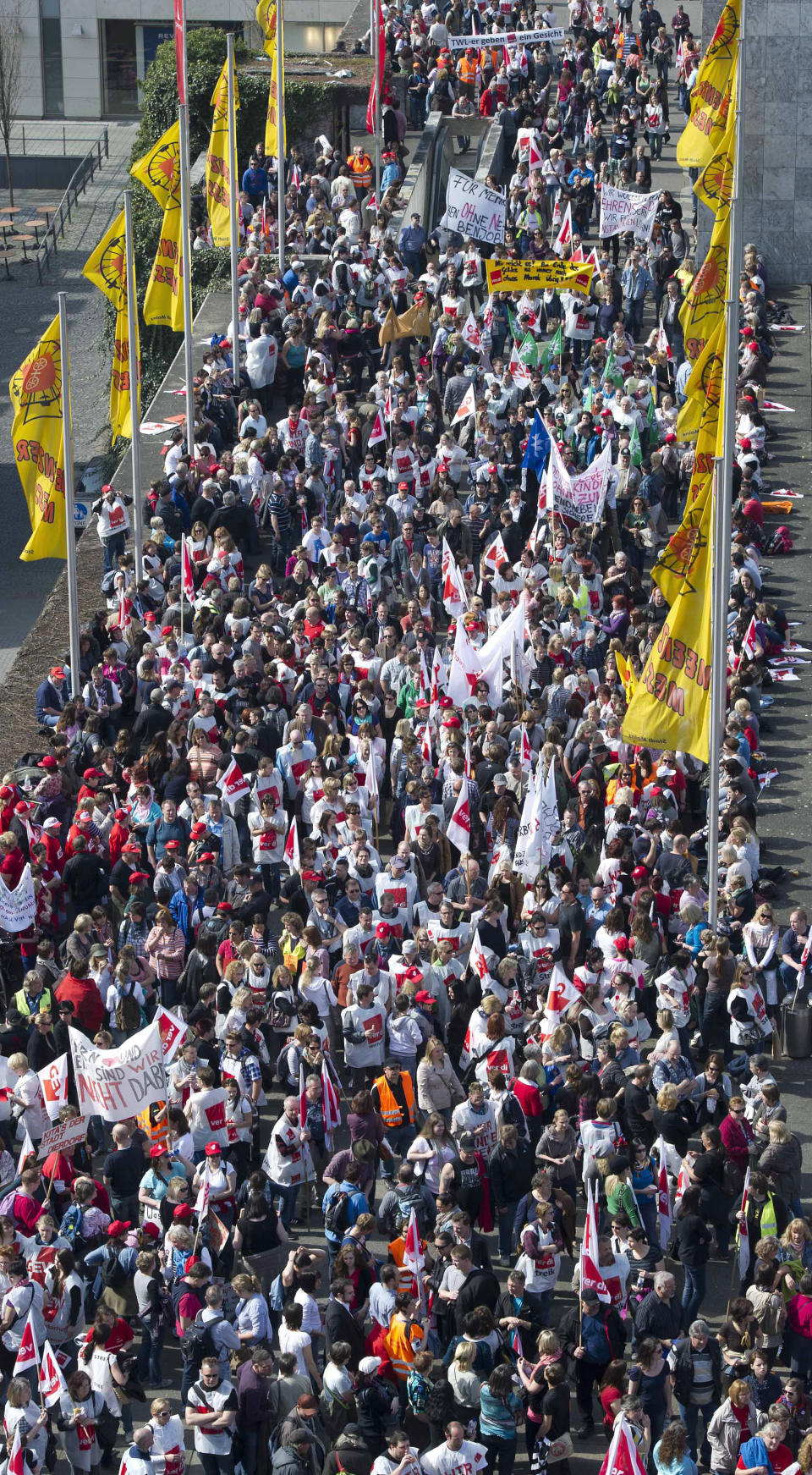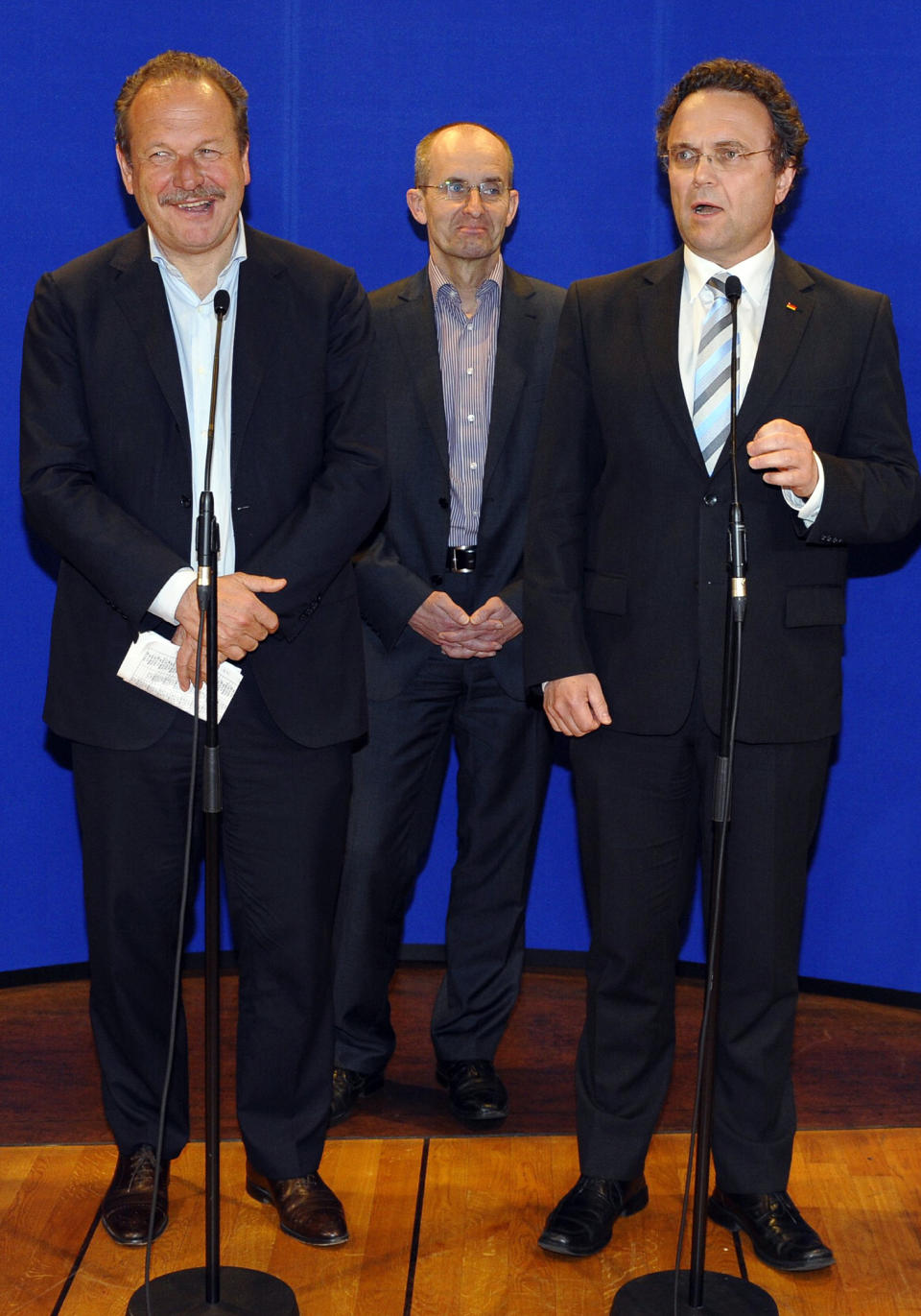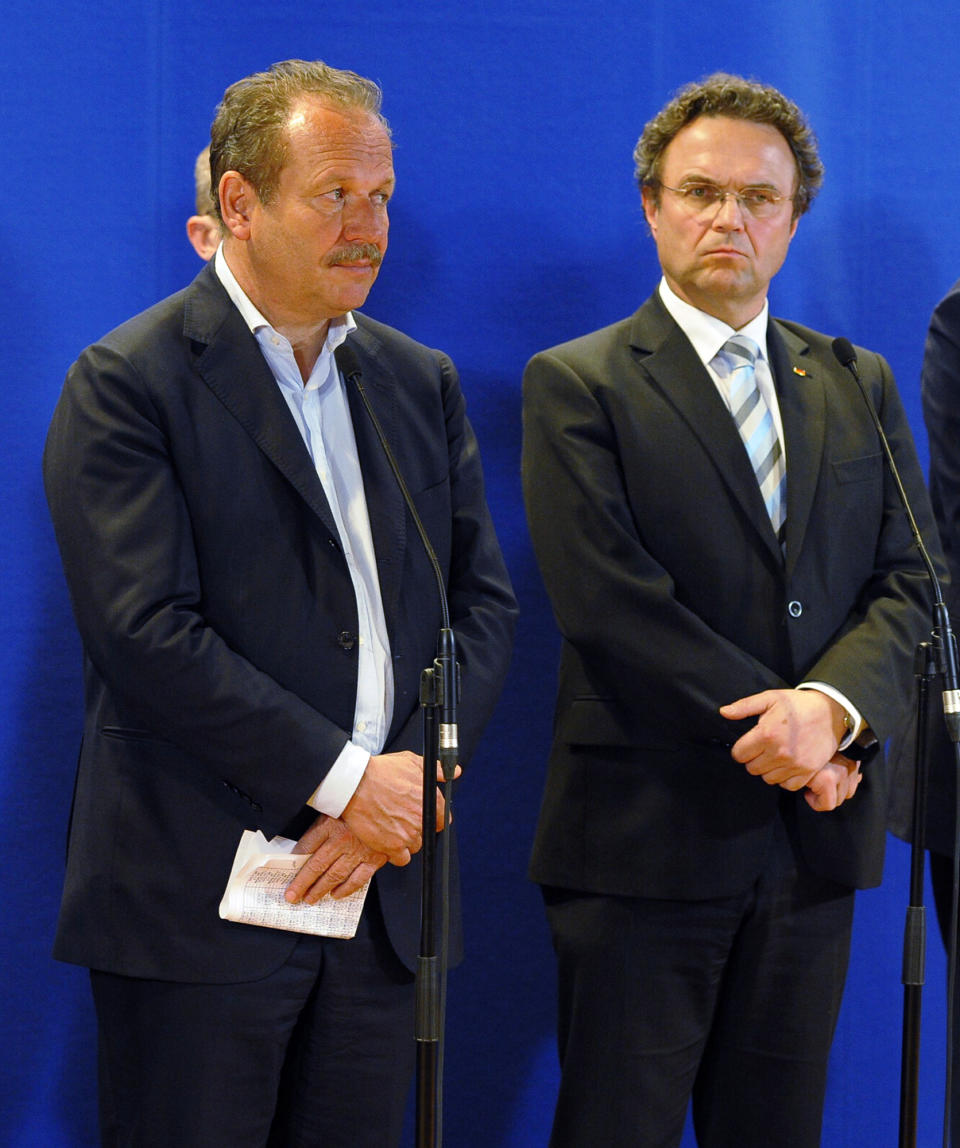German public workers: 6.3 pct raise over 2 years
BERLIN (AP) — Some 2 million German public-sector employees are to get a pay rise totaling 6.3 percent over two years, employers and a union said Saturday after marathon talks that followed disruptive walkouts in recent weeks.
The hard-fought agreement banishes the ver.di union's threat to ballot members on an all-out strike campaign had a deal not been reached.
"We have agreed to raise public service wages by 6.3 percent over 24 months, in three stages," Interior Minister Hans-Peter Friedrich — the chief government negotiator — announced after talks in Potsdam, outside Berlin, that overran by more than a day.
That is well short of ver.di's original demand of a 6.5 percent raise this year alone for federal and municipal employees as diverse as garbage collectors, teachers and civil-service administrators.
But it is much higher than the 3.3 percent over two years that employers originally offered. Ver.di rejected that, arguing that it wouldn't even keep up with the pace of inflation — currently running at an annual rate of just over 2 percent in Germany.
The union stepped up a campaign of limited warning strikes to raise the pressure ahead of talks that started Wednesday. On Tuesday, walkouts resulted in hundreds of flight cancelations at German airports.
The deal involves an initial 3.5 percent raise backdated to March 1, followed by further increases of 1.4 percent each on Jan. 1 and Aug. 1 next year.
Ver.di argued that public-sector workers deserve a significant increase after showing relative restraint in recent years, and after two years of strong economic growth.
But the government pointed to slowing growth — Germany's economy, Europe's biggest, contracted slightly in last year's final quarter though it is expected to start growing again this spring.
Friedrich said that the deal would cost the federal government some €550 million ($734 million) and "the employers went up to their pain threshold." Municipal employers will have to shoulder costs of some €2.2 billion this year and €4.3 percent next year.
Ver.di leader Frank Bsirske said the raise the union secured "is good, and it was bitterly necessary in order to reduce the wage gap between public service and the economy as a whole."
The union wasn't able to push through a demand that wages rise by a minimum €200 ($267) per month, aimed at helping lower-paid workers.
That is "extremely regrettable because lower wage groups are more strongly affected by price rises," Bsirske said.
The deal foresees special one-time payments for airport workers, ver.di said — €600 each for employees at airports with 5 million passengers or more this year, and €200 for those at less busy airports.
The agreement still needs final approval from union members.
Private-sector employers in Germany also face hefty pay demands this year. The IG Metall industrial union is seeking a 6.5 percent raise for workers in the key manufacturing sector. Talks are due in mid-April.




